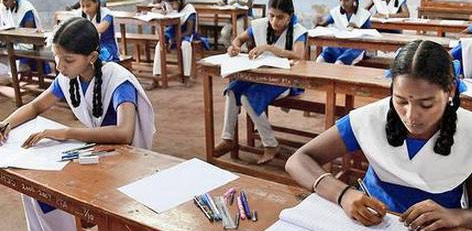Standard Chartered study reveals India leads the way as Asias most investment savvy major economy
Posted on: 29/Oct/2018 3:51:55 PM

29 October 2018, [India] - India is Asia’s most investment savvy economy, according to a new Standard Chartered study of 11,000 emerging affluent consumers across Asia, Africa and the Middle East.
The Emerging Affluent Study 2018 - Climbing the Prosperity Ladder – examines the views of emerging affluent consumers – individuals who are earning enough to save and invest – from 11 markets across Asia, Africa and the Middle East.
In India more than two-thirds (68%) of the emerging affluent are using investment products* to achieve their financial goals; it is the highest number in the study and compares to an average figure of 57%. This is part of a long-term financial plan, as 63% of this rising consumer class choose investing in financial products as a strategy to meet their financial goals and increase their wealth. The next most popular strategy is career progression and salary increase (44%); followed by starting a business, with a quarter (25%) choosing this as an effective way to increase their wealth.
The study also reveals that more than three-quarters (79%) of the emerging affluent in India believe effective wealth management holds the key to greater social mobility. This investment-savvy approach is working: India is the most socially mobile market in the study, along with China, with more than two-thirds (67%) of its emerging affluent experiencing upward social mobility; of these, 11% are enjoying ‘supercharged’** social mobility, not just relative to the previous generation, but compared to the rest of the socially mobile - this is again the highest number in the study, along with Pakistan (11%).
The number one financial goal for India’s emerging affluent is saving towards their children’s education, with 17% stating this; it is also the top savings priority across the markets in the study (16%).
Shyamal Saxena, Head – Retail Banking, India, Standard Chartered Bank, said: “It’s exciting to see that social mobility is booming among the emerging affluent, and that they are outstripping their parents’ success in education, careers and home ownership. These aspiring consumers are determined to continue moving upwards, and know that investing can help them reach their financial goals.
Although they are eager to invest, the emerging affluent are being held back by a lack of in-depth financial knowledge and may not be aware of all the solutions available to them. Digital financial products are enabling the emerging affluent to achieve their goals, and these tools will be crucial in helping them take their personal financial success to the next level.”
The emerging affluent in India are using a range of investment products to meet their financial goals. 31% of them selecting mutual funds, a quarter (25%) choosing fixed income investments and 22% equity investments. All figures are higher than the average in the study, which is 16%, 19% and 18% respectively.
Despite using investment products, 56% of India’s emerging affluent feel far away from achieving their top financial goal. This could be down to them using investment products, but not as part of a broader investment strategy: only just over half (55%) say they have an investment target and a strategy to achieve it.
India’s emerging afflueuent recognise that a lack of financial understanding may be stopping them from meeting their financial goals, and that financial education could make all the difference: more than half (55%) say they feel held back in their aspirations by their lack of financial knowledge, and 62% believe financial education would help them reach their financial goals faster.
Other findings from the study, now in its fourth year, include:
Social mobility booming in India
The socially mobile in India are scaling the ladder thanks to impressive earnings growth, with almost half (46%) enjoying a salary increase of 10% or more in the past year, and nearly a third (30%) seeing their earnings jump by 50% or more in the past five years. The socially mobile are also better educated and achieving higher levels of employment and home ownership than their parents. 93% went to university, compared to 71% of their fathers and half (50%) of their mothers; and eight in ten (85%) are in management positions or running their own businesses compared to 61% of their fathers and 31% of their mothers. 90% of the socially mobile own their own home, compared to 83% of their parents.







